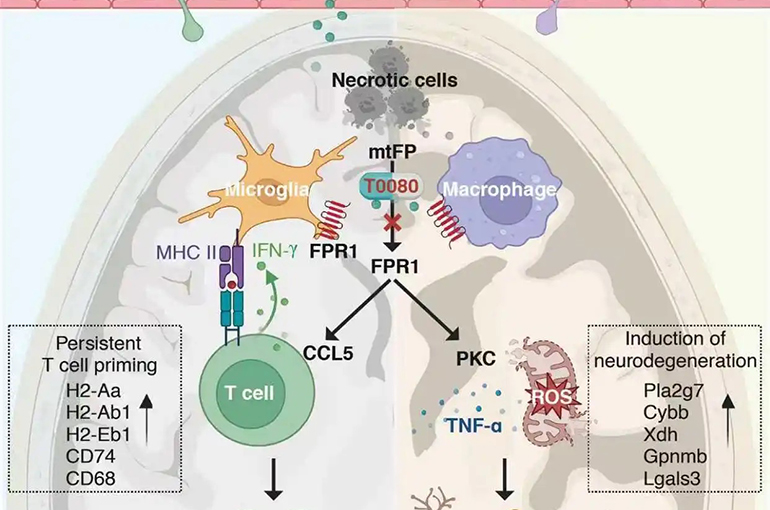 Chinese Scientists Make Breakthrough in Treating Nervous System Diseases
Chinese Scientists Make Breakthrough in Treating Nervous System Diseases(Yicai) Nov. 14 -- Chinese scientists, after years of research, have discovered a key pathological mechanism behind neurodegenerative diseases and have developed a promising drug candidate, paving the way for new treatments for neurological disorders, including multiple sclerosis.
A team led by Shi Fudong, chief physician at the Tianjin Medical University General Hospital’s Department of Neurology, discovered that the formyl peptide receptor 1, or FPR1, plays a key role in triggering inflammation and degeneration in the central nervous system, according to the research results published today in the scientific journal Science.
Based on this finding, the team developed a small molecular antagonist targeting FPR1, named T0080, which they are now preparing for clinical trials, the report said.
FPRs are widely present in the white blood cells of mammals and play a role in the recognition and regulation of immune responses. The research team found that in mouse models of multiple sclerosis, FPR1 continuously stimulated immune cells to release inflammatory factors, exacerbating damage to the central nervous system.
Targeting FPR1 offers new possibilities for the treatment of multiple sclerosis, which is a chronic neurological disease that primarily affects young adults, leading to motor impairment, vision loss and, in severe cases, cognitive decline and mental health issues. Current treatments mainly focus on alleviating symptoms but have difficulty stopping ongoing brain damage.
Shi's team used computer-aided drug design techniques to screen millions of compounds to ultimately identify T0080. Tests on animal models showed that T0080 can significantly reduce brain inflammation and slow neurodegeneration, Xinhua News Agency reported.
T0080 not only shows promise for the treatment of multiple sclerosis but may also have potential for treating other diseases with similar pathological mechanisms, such as Alzheimer's, Parkinson's and stroke, the report said.
Editor: Kim Taylor